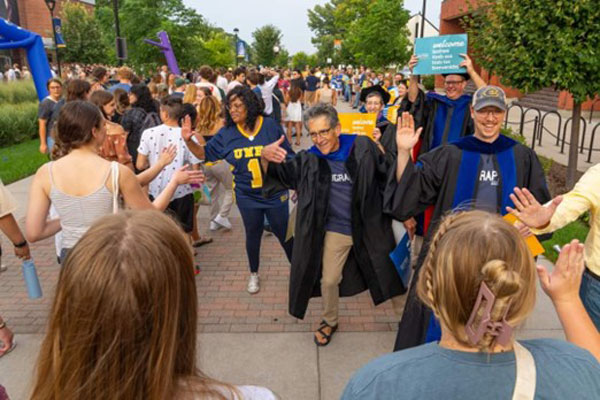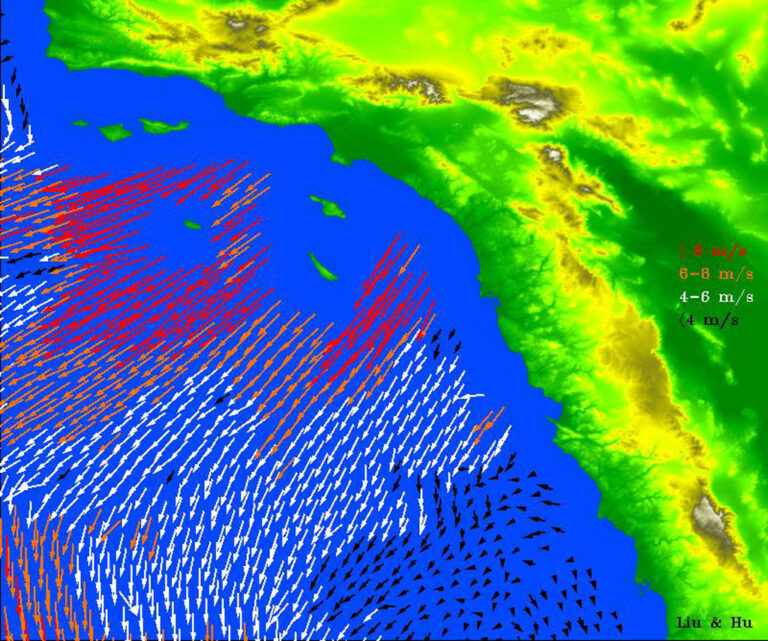Academic Freedom, Advocacy, and the Importance of Our Professional Association


Many of us look forward to summer, as it tends to bring some time to rest and reflect. Alas, this summer I find it more difficult to put my mind at ease as hardly a day goes by without news of another challenge facing higher education. At the end of June, Governor Katie Hobbs vetoed House Bill 2735, which landed on her desk after passing the Arizona State Senate following much debate in and outside the legislature. The bill, purportedly drafted in response to a financial crisis at the University of Arizona, intends to concentrate decision-making power over educational matters in university regents and presidents. While House Bill 2735 has not been signed into law, challenges to faculty participation in shared governance and to academic freedom more broadly abound. Some of these challenges originate from within universities. Take, for example, the University of Kentucky, my home institution. Following a longer campaign by the university’s president, our university senate, which had curricular oversight and decision-making power with regard to educational policy, is being replaced with a faculty senate that only has advisory capacity. Similar to the intent of Arizona’s House Bill 2735, this shift consolidates educational policy decision-making power with the university president and the Board of Trustees.
Other challenges to academic freedom and even the right to free speech have followed on the heels of on-campus, often pro-Palestinian, protests and encampments in the late spring and early summer. Across the United States, colleges and universities have responded to such protests with increasing amounts of policing—arresting, suspending, and expelling students and faculty. These crackdowns infringe on the First Amendment right to protest, and they are indicative of growing restrictions to campuses as sites of open dialogue. Together with wider ranging, often sudden shifts in university policies and newly implemented rules that go into effect without notice, police force and the threat of violence toward protesters seem intent on discouraging public debate by intimidating students and faculty.
More broadly, legislatures in numerous states of the U.S. have targeted educational freedom through a number of bills that variably seek to ban particular theoretical frameworks that explain social injustice (such as critical race theory), AP Black Studies courses, or mention of inequalities, as well as DEI initiatives that seek to redress existing inequities in colleges and universities. In 2023 alone, some 45 anti-DEI bills were introduced across the country; more are underway. These legislative initiatives, as many of you know, have gone far in their attempts to undermine efforts at remedying some of the historical injustices and exclusions in higher education.
Safeguarding and Strengthening Geography for the Future
Against the backdrop of these challenges, which often appear alongside broader budgetary and demographic shifts, I felt fortunate to spend some time with department and program leaders in geography and cognate disciplines to discuss external pressures on our discipline, our departments, and workplaces at this year’s AAG Department Leadership workshop. Two days of virtual meetings that I co-organized and co-hosted with past AAG presidents Ken Foote and Rebecca Lave, and the AAG’s chief strategy officer Risha RaQuelle, made space for thinking carefully through the question of what makes a department healthy and why department health matters, a conversation that originated 20 years ago. The workshop provided ample opportunities to discuss the challenges and pressures that face higher education and geography, and to explore with expert session leaders, as well, the opportunities that such shifts in higher education and on college campuses may bring. Some of our sessions explicitly addressed the need to make the case for geography to university administrators and to our students and their parents. These latter sessions generated thoughtful discussions on what geographic inquiry and knowledge offer students in terms of career readiness skills and career paths. We discussed how to communicate (including to university administrators) geography’s integrative nature and our discipline’s ability to tackle big questions such as climate change.
And while state legislatures or some university administrators may think differently, we also talked about the importance of improving shared governance within departments in order to create better workplaces for one another and to better serve our students. Our conversations about building, expanding, and maintaining a Culture of Care in geographers’ everyday workspaces also addressed the legislative challenges to equity, inclusivity, and diversity that may require a new vocabulary and different strategies for us to continue our work toward more just geographies.
Sharing the leadership workshop space with such talented and dedicated department and program leaders not only leaves me impressed and confident in the future of geography, but also reminds me why our professional organization has such a critical and necessary role to play! For many geographers, our first introduction to the AAG comes via participating in the annual meeting or in the regional division conferences, and these remain important cornerstones of the AAG’s work to facilitate geographic knowledge production. But the AAG does much more than that on behalf of geographers. Apart from professional development and mentoring initiatives such as the annual AAG leadership workshop and the GFDA early career development workshop, the AAG supports and enriches the lives of geographers in academic and non-academic careers through its Specialty and Affinity Groups, and AAG’s new initiative to encourage Research Partnerships (the first RFP focuses on Targeted Mentoring Networks). I also encourage you to check out the educational materials on the AAG’s wetbsite and YouTube channel, such as these readings in Black Geographies and racial justice and in Queer and Trans Geographies.
As our professional organization, the AAG also plays an important role in providing guidance, leadership, and advocacy for scholar-educators and non-academic geography practitioners alike. I have been impressed with the growing efforts to integrate our collective commitments to justice, equity, diversity, and inclusion (JEDI) across the AAG’s activities to create a more equitable and more inclusive discipline of geography. The Healthy Departments Committee’s activities in support of programs facing external pressures are invaluable, and so is committee chair and AAG Past President David Kaplan’s advice for departments to be proactive. Similarly, the Elevate the Discipline initiative provides guidance and media training for geographers to engage in public scholarship that communicates geographic insights to the wider public, a worthwhile endeavor that dovetails well with immediate past president Rebecca Lave’s focus on public and engaged scholarship.
In the current moment, I especially appreciate the AAG’s leadership in climate action, support for scientific inquiry, public scholarship, inclusion, and more broadly its advocacy in support of academic and educational freedom. My own scholarly work grapples with questions of rights, care, and justice, and the attacks on shared governance, academic freedom, and civic rights feel like significant challenges to democracy itself. So, I am grateful that the AAG is one of 40 professional organizations to sign on to the American Historical Association’s Statement on 2024 Campus Protests that affirms the right to a diversity of opinions and calls on university administrators to refrain from using force to suppress protests.
As our scientific and professional organization, the AAG’s advocacy on behalf of geography is critical and I am grateful for it. But the work to keep improving our discipline and our work as geographers falls on all of us. So, I want to close with the gentle reminder that in order to create more equitable worlds of geography and for geographers, all of us are called upon “to uphold equity, human rights, and educational freedom.”
Please note: The ideas expressed in the AAG President’s column are not necessarily the views of the AAG as a whole. This column is traditionally a space in which the president may talk about their views or focus during their tenure as president of AAG, or spotlight their areas of professional work. Please feel free to email the president directly at [email protected] to enable a constructive discussion.


